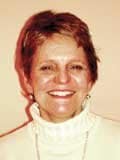
Grace C. Riddell, LICSW, LCSW-C, MEd
10027 Frederick Avenue
Kensington, MD 20895

On Becoming Ourselves
Even though we know that life is full of changes, our society does not allow a mechanism to prepare for moving from one phase of life to another. Nature teaches us that change is the norm yet we need to reorient and redefine ourselves in new situations in order to incorporate change. Without the interior work of transition, change is just a rearrangement of the furniture.
In his book Transitions Making Sense of Life's Changes, William Bridges says that the three phases of transition are an ending, a beginning and an important empty or fallow time in between. The first phase involves letting go of the external and internal attachments to the old way of life. Other cultures maintain rituals for clearing the mind of old memories in order to make way for a new stage of life. Our society expects us to retire or move into a new job or house without allowing time to empty ourselves so that we can be filled with new dreams and visions. As clinicians, we can help our clients identify the losses and grieve them appropriately. Then, we can explore the form that the client wants his or her life to take.
The second phase of transition is often avoided because it can be a confusing and disturbing time. Some traditions allow for the in-between zone by using rituals such as sending one off to an unfamiliar desert or forest for a time to find oneself. Helping clients empty them selves to become non-vessels by just being still in a holding environment is an important therapeutic task at this phase of transition. The client may decide to stay at home in quiet with time for meditation, journaling and reflection. However, others may choose dramatic retreats such as one 58-year-old woman who left her job and drove to Alaska by herself after being rejected by her husband of many years. Afterwards, she said that on the trip she had enjoyed her own company, which proved to herself that, despite her ex-husband's thinking, she was “pretty easy to be with.”
Often, during this phase, clients present with “I don't know who I am” which could be part of the confused and disoriented state of mind. The clinician can help the client decide if a life-changing event is necessary versus a sabbatical or vacation.
The final stage of transition is a new beginning. Taking small steps without succumbing to “buyer's remorse” is this stage's challenge.
In her 60's, Ellen Burstyn inspires us on how to move into the third phase of transition. In her memoir Lessons on Becoming Myself she states that she vowed to move into the next period of her life boldly by looking at what she was afraid of and moving toward it instead of away from it. These are exciting times of change let's all take the plunge.

















